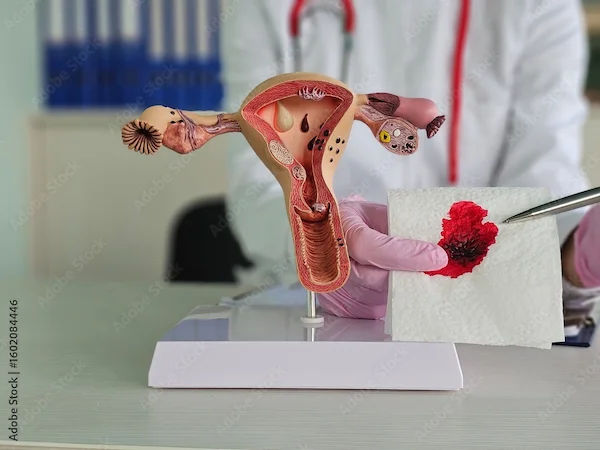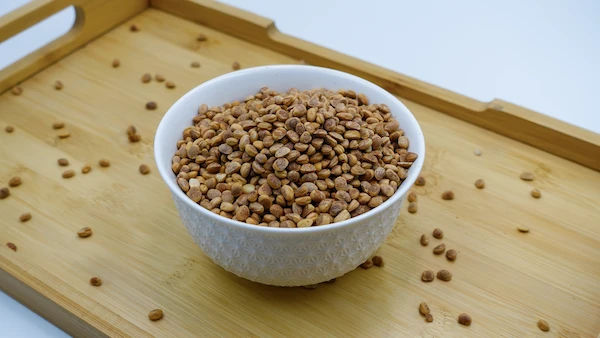Understanding the Reasons for GERD
Know about the GERD, causes, its symptoms, how it affects the health, how to manage its symptoms and prevention techniques. Learn about when to see a doctor and more.

Written by Dr. M L Ezhilarasan
Reviewed by Dr. Shaik Abdul Kalam MD (Physician)
Last updated on 7th Aug, 2025

Introduction
Gastroesophageal reflux disease (GERD) is a common digestive disorder that affects millions of people worldwide. If you’ve ever experienced a burning sensation in your chest after eating or frequent acid reflux, you might be dealing with GERD. While occasional heartburn is normal, persistent symptoms can indicate a more serious issue.
In this article, we’ll explore what GERD is, its causes, symptoms, and how you can manage it effectively.
What is GERD?
GERD occurs when stomach acid frequently flows back into the esophagus (the tube connecting your mouth and stomach). This backwash (acid reflux) irritates the lining of your esophagus, leading to discomfort and sometimes complications.
Unlike occasional heartburn, GERD is a chronic condition that requires attention. If left untreated, it can lead to more severe problems like esophagitis (inflammation of the esophagus) or even esophageal damage.
Consult a top Gastroenterologist for the best advice
Common Symptoms of GERD
Recognizing the symptoms of GERD is the first step toward managing it. Some common signs include:
Heartburn
A burning sensation in the chest, usually after eating, which may worsen at night.
Regurgitation
A sour or bitter-tasting acid backing up into your throat or mouth.
Difficulty swallowing (dysphagia)
Feeling like food is stuck in your throat.
Chronic cough or hoarseness
Due to acid irritating the throat.
Chest pain
Sometimes mistaken for a heart attack (if severe, seek medical help immediately).
Nausea or vomiting
Especially after meals.
If you experience these symptoms more than twice a week, it’s best to consult a doctor.
What Causes GERD?
Several factors contribute to GERD. Understanding these can help you take preventive measures.
1. Weak Lower Esophageal Sphincter (LES)
The LES is a ring of muscle that acts as a valve between the esophagus and stomach. If it weakens or relaxes abnormally, stomach acid can flow back up.
2. Hiatal Hernia
A hiatal hernia occurs when part of the stomach pushes up through the diaphragm. This can weaken the LES, making acid reflux more likely.
3. Dietary Triggers
Certain foods and drinks can trigger GERD, including:
Spicy, fatty, or fried foods
Citrus fruits and tomatoes
Chocolate, coffee, and carbonated drinks
Alcohol
4. Obesity
Excess weight increases abdominal pressure, pushing stomach contents upward.
5. Pregnancy
Hormonal changes and pressure from the growing baby can lead to acid reflux.
6. Smoking
Smoking weakens the LES and reduces saliva production, which normally helps neutralize acid.
7. Certain Medications
Some drugs, like aspirin, ibuprofen, and blood pressure medications, can relax the LES or irritate the esophagus.
How Does GERD Affect Your Health?
If left untreated, GERD can lead to complications such as:
Esophagitis – Inflammation that can cause bleeding or ulcers.
Esophageal strictures – Narrowing of the esophagus due to scarring.
Barrett’s esophagus – A precancerous condition where the esophageal lining changes.
Respiratory problems – Acid reflux can trigger asthma, chronic cough, or pneumonia.
Tips to Manage GERD
While GERD can be uncomfortable, lifestyle changes and medications can help control symptoms.
Dietary Adjustments
Avoid trigger foods – Identify and limit foods that worsen your symptoms.
Eat smaller, frequent meals – Large meals increase stomach pressure.
Don’t lie down immediately after eating – Wait at least 2-3 hours before sleeping.
Lifestyle Changes
Maintain a healthy weight – Losing excess weight reduces pressure on the stomach.
Elevate your head while sleeping – Use a wedge pillow to prevent nighttime reflux.
Quit smoking – Smoking worsens GERD symptoms.
Medications
Antacids – Provide quick relief by neutralizing stomach acid.
H2 blockers (e.g., ranitidine) – Reduce acid production.
Proton pump inhibitors (PPIs, e.g., omeprazole) – Stronger acid reducers for long-term management.
If symptoms persist despite these changes, consult a doctor. Severe cases may require further tests or surgery.
When to See a Doctor?
Seek medical attention if you experience:
Frequent or severe heartburn
Difficulty swallowing
Unintentional weight loss
Chest pain (to rule out heart conditions)
Persistent vomiting or blood in vomit
Final Thoughts
GERD is a manageable condition with the right approach. By understanding its causes, recognizing symptoms, and making simple lifestyle changes, you can reduce discomfort and prevent complications.
Consult a top Gastroenterologist for the best advice
Consult a top Gastroenterologist for the best advice

Dr. Chethan T L
General Physician/ Internal Medicine Specialist
5 Years • MBBS, MD, DNB (General Medicine)
Bengaluru
Apollo Medical Center, Marathahalli, Bengaluru

Dr Anshuman Kaushal
Minimal Access/Surgical Gastroenterology
24 Years • MS FNB (MAS) FACS FCLS FIAGES FALS (BARIATRIC) FMAS
Delhi
Apollo Hospitals Indraprastha, Delhi

Dr Harish K C
Gastroenterology/gi Medicine Specialist
15 Years • MBBS MD DM MRCP(UK) (SCE-Gastroenterology and Hepatology)
Bengaluru
Apollo Clinic, JP nagar, Bengaluru
Dr. Harsha Mandalapu
Gastroenterology/gi Medicine Specialist
8 Years • MBBS, MD Gen Medicine, DM Gastroenterology
Tenali
Harsha Gastro, Liver & ENT Centre, Tenali

Dr. Jatin Yegurla
Gastroenterology/gi Medicine Specialist
11 Years • MD (PGI), DM (AIIMS Delhi), FAGIE (AIIMS Delhi), ESEGH (UK), Gold Medalist
Hyderabad
Apollo Hospitals Jubilee Hills, Hyderabad
(600+ Patients)




.webp)